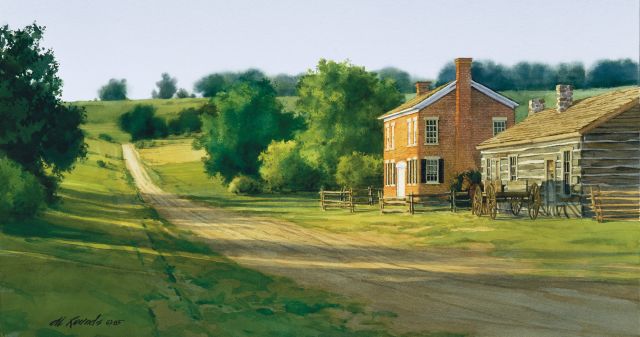To accompany your Come Follow Me study for June 2-8
In addition to reading D&C 58-59 you will want to read:
- Chapter 21: Doctrine and Covenants 57–58 (churchofjesuschrist.org)
- Chapter 22: Doctrine and Covenants 59–62 (churchofjesuschrist.org)
- Ezra Booth and Isaac Morley (churchofjesuschrist.org)
- Joseph Smith’s Revelations, Doctrine and Covenants 58 (churchofjesuschrist.org)
- Joseph Smith’s Revelations, Doctrine and Covenants 59 (churchofjesuschrist.org)
- Saints, 1:127–33 at https://www.churchofjesuschrist.org/study/history/saints-v1/12-after-much-tribulation.8-36?lang=eng#p8#8
You may also enjoy the following videos:
If you would like a Kahoot game related to this material that you could use with your family or with your class, click here: https://create.kahoot.it/share/doctrine-and-covenants-58-59/dc2a8325-0a65-4f61-a8f0-07d0df6a367f. To use it with a group, after clicking on this link, you will need to log into Kahoot, creating a free account if you have not done so previously, then click on the blue “Host Live” button or the gray “Assign” button, depending on how you wish to use the Kahoot. Some of the Kahoot questions may presuppose that the player has read through the suggested answers to the following Points to Ponder and at least has browsed the Institute student manual as well.
Points to Ponder in Doctrine and Covenants 58-59
1. What clues do you see in D&C 58 which, if properly understood by the saints, should have made it less surprising for them when they were driven out of Jackson County without being able to build Zion at that time?
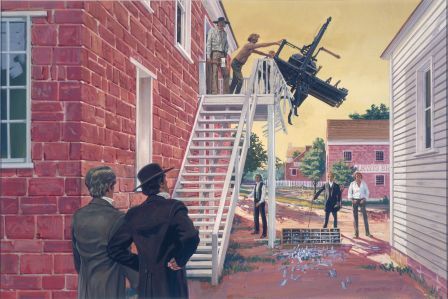
2. In this day of concern about cholesterol, how can you justify such a fat-laden diet as 58:8 seems to forecast?

3. Is there a higher percentage of sins that are crimes or of crimes that are sins? Explain.

4. How do you reconcile 58:21 with the Church’s defiance of anti-plural marriage laws for twenty-eight years?
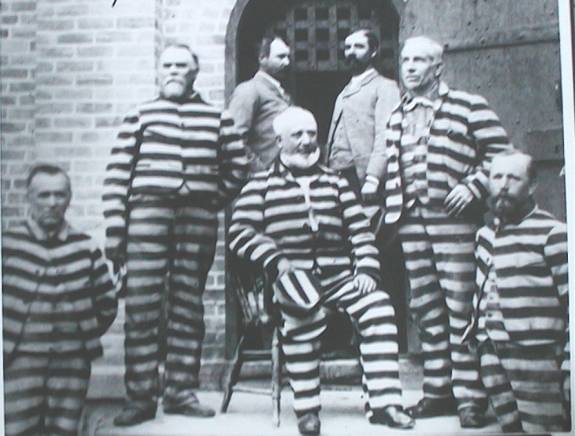
5. D&C 58:26-29 is often cited as evidence that we shouldn’t seek or expect divine guidance in a great many secular areas. How do these verses, if properly understood, actually constitute evidence that we should seek such guidance?
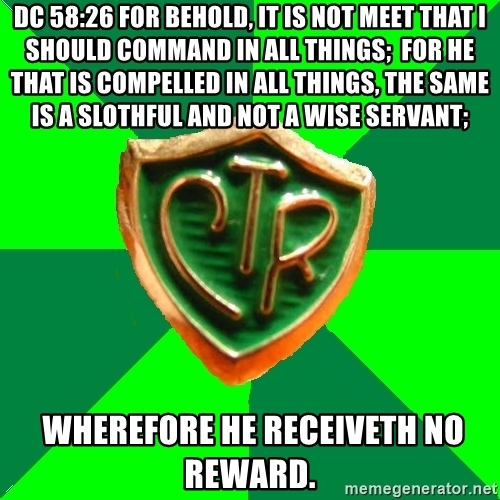
6. Why did W. W. Phelps get in trouble for trying to “excel”? Shouldn’t we all aspire to excellence?
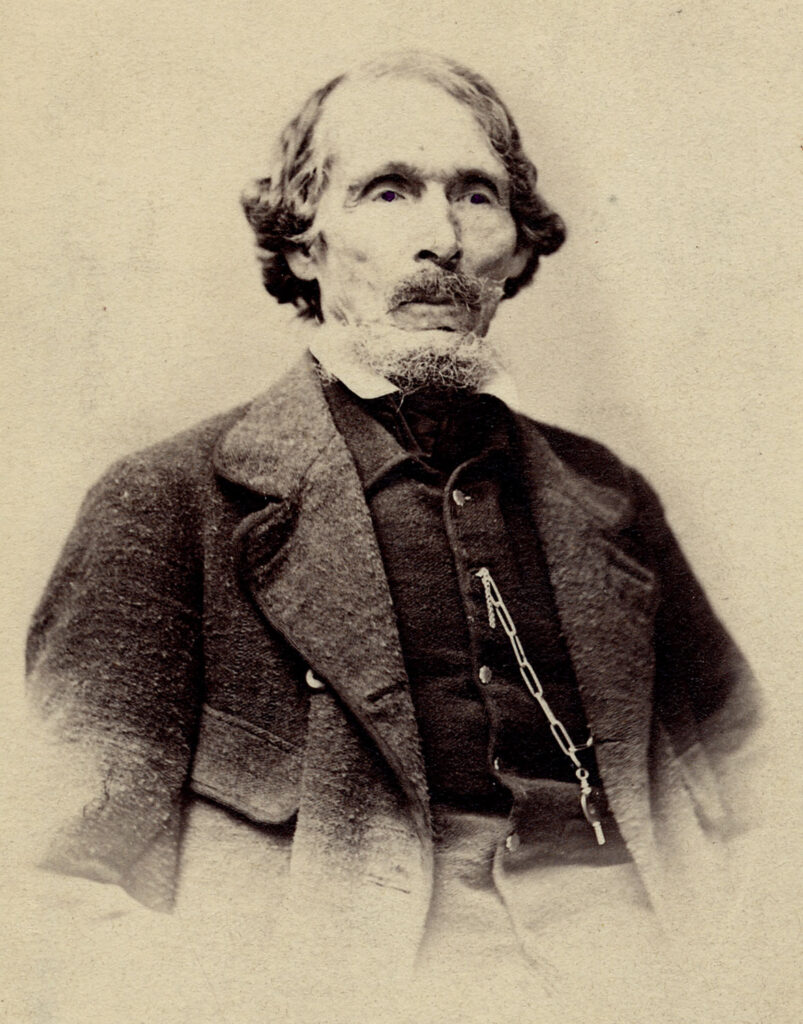
7. Why isn’t one who broke the law of chastity only once, two years earlier, and who has scrupulously avoided even the appearance of wrongdoing ever since necessarily worthy of a mission call or a temple recommend?
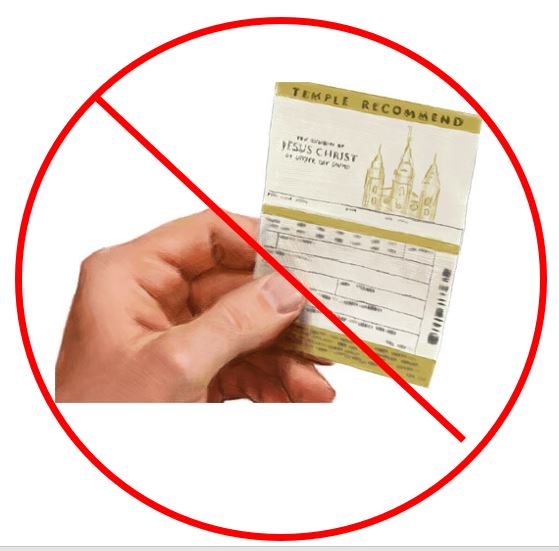
8. Why would the Lord use the symbol of “pushing” rather than “pulling” as the means to accomplish the gathering? Doesn’t the Lord work through attraction rather than compulsion?
9. How can 59:4 be considered a motivation to righteousness in view of the fact that many members think we already have too many commandments?
10. Why would 59:9 direct us to “offer up” our sacraments rather than “partake” of the sacrament?
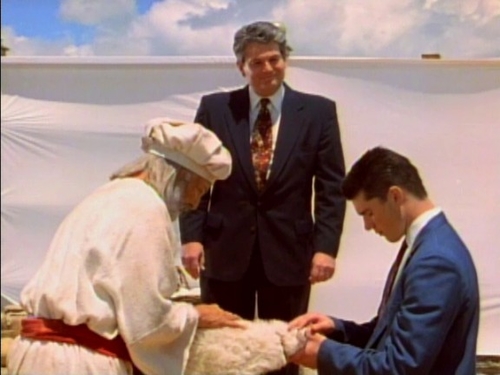
11. What counsel regarding the Sabbath in D&C 59 do you believe deserves further emphasis?
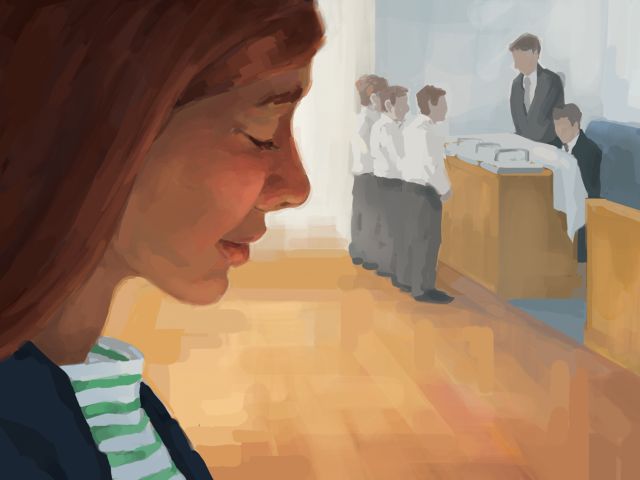
12. How “much laughter” does it take to constitute sin?
FIND A REFERENCE IN D&C 58-59 FOR EACH OF THE FOLLOWING IDEAS:
13. The rightness or wrongness of abortion doesn’t depend on our resolving the question of when the spirit enters the body.
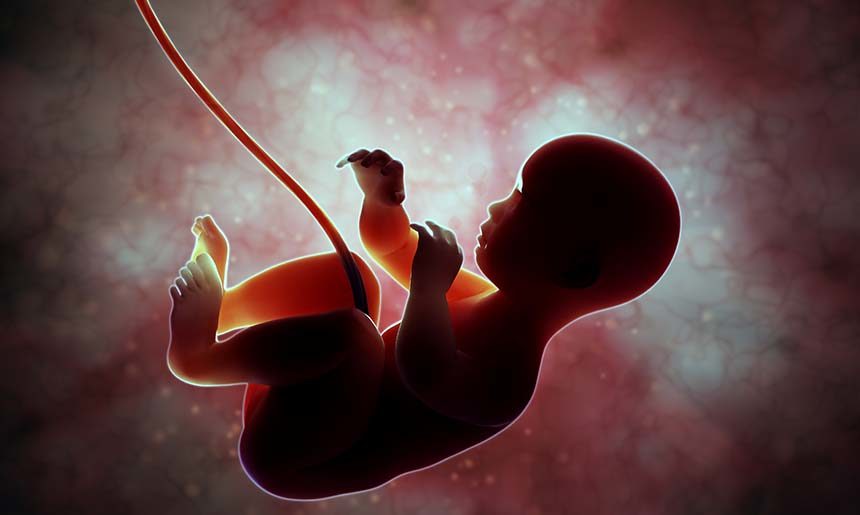
14. Two verses which probably meant more to Joseph Knight than anyone else.
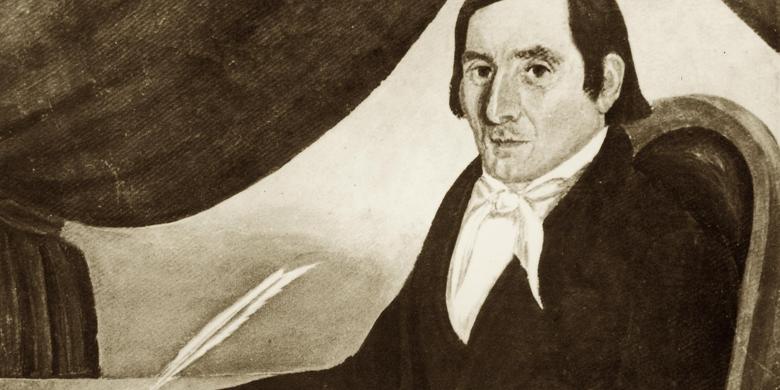
15. What passage in this week’s reading should be most enlightening for those who feel they can’t serve the Lord because the bishop won’t give them a calling?
16. What passage is the Lord’s answer to those who would say, “The Church of Jesus Christ of Latter-day Saints cannot be true, because there were things promised in my patriarchal blessing forty years ago which have not come to pass, and I’ve now been diagnosed with terminal cancer with only weeks to live and there is no prospect of their coming to pass”?

17. What passage in D&C 58 might be comforting to a prospective missionary who wanted to go on a mission but wasn’t sure he could stand up and say he knew for sure that the Church was true?

18. Evidence that the Lord has an aesthetic sense.
19. The one blessing which is promised to all faithful saints in this life.
20. What other passages or ideas did you find in these two sections that you felt are worth highlighting?
Possible Answers to Points to Ponder in Doctrine and Covenants 58-59
1. What clues do you see in D&C 58 which, if properly understood by the saints, should have made it less surprising for them when they were driven out of Jackson County without being able to build Zion at that time?
Verses 2, 3, and 4 all speak of “much tribulation” which will precede the building of Zion, and verses 6-7, in telling why the Lord sent the early saints there, speak of their being “honored in laying the foundation,” not of their succeeding in completing the project. Verse 44 indicates that the general gathering to Zion would not occur for many years yet.
2. In this day of concern about cholesterol, how can you justify such a fat-laden diet as 58:8 seems to forecast?
The reference, of course, is to a spiritual feast, presumably the same great celebration as is foreshadowed in D&C 27, Isaiah 25:6, and Matt. 22:1-14.
3. Is there a higher percentage of sins that are crimes or of crimes that are sins? Explain.
Very nearly one hundred percent of crimes are also sins, since the Lord instructed us not to violate the laws of the land. (58:21). However, many “sins” in the eyes of God, such as breaking the Word of Wisdom, failure to pay tithing, negligence of ministering responsibilities, etc., and even many abortions are not crimes against the law, even though in a perfect society more of them would be.
4. How do you reconcile 58:21 with the Church’s defiance of anti-plural marriage laws for twenty-eight years?
The Church took the position that this passage referred only to “constitutional” laws, and they consistently denied that the Congress had authority to thus abridge the right of freedom of religion.
5. D&C 58:26-29 is often cited as evidence that we shouldn’t seek or expect divine guidance in a great many secular areas. How do these verses, if properly understood, actually constitute evidence that we should seek such guidance?
If we look at the context and include v. 24-25, we find that Edward Partridge was hoping Joseph Smith would ask the Lord for detailed instructions on how he (Partridge) should move his family to Missouri. The Lord’s answer was that Joseph Smith should be left out of it and that Edward and his counselors should make such decisions for themselves after counseling with the Lord. The message is not to avoid seeking divine guidance, but to seek it directly from the source and not through an intermediary. See 62:8 for a similar passage.
6. Why did W. W. Phelps get in trouble for trying to “excel”? Shouldn’t we all aspire to excellence?
Phelps wasn’t trying to do his best–he was trying to appear better than everyone else. His problem was pride, not high goals.
7. Why isn’t one who broke the law of chastity only once, two years earlier, and who has scrupulously avoided even the appearance of wrongdoing ever since necessarily worthy of a mission call or a temple recommend?
No mention was made of whether or not he had confessed the earlier transgression to his bishop. Real repentance begins, not ends, with appropriate confession. Abstinence from further transgression is only part of the process. (58:43)
8. Why would the Lord use the symbol of “pushing” rather than “pulling” as the means to accomplish the gathering? Doesn’t the Lord work through attraction rather than compulsion?
This imagery, borrowed from Deut. 33:17, seems to symbolize the power behind the work, like the power of an ox, rather than the methodology of the ox!

9. How can 59:4 be considered a motivation to righteousness in view of the fact that many members think we already have too many commandments?
If we view commandments as recipes for happiness rather than restrictions, they indeed loom as blessings.
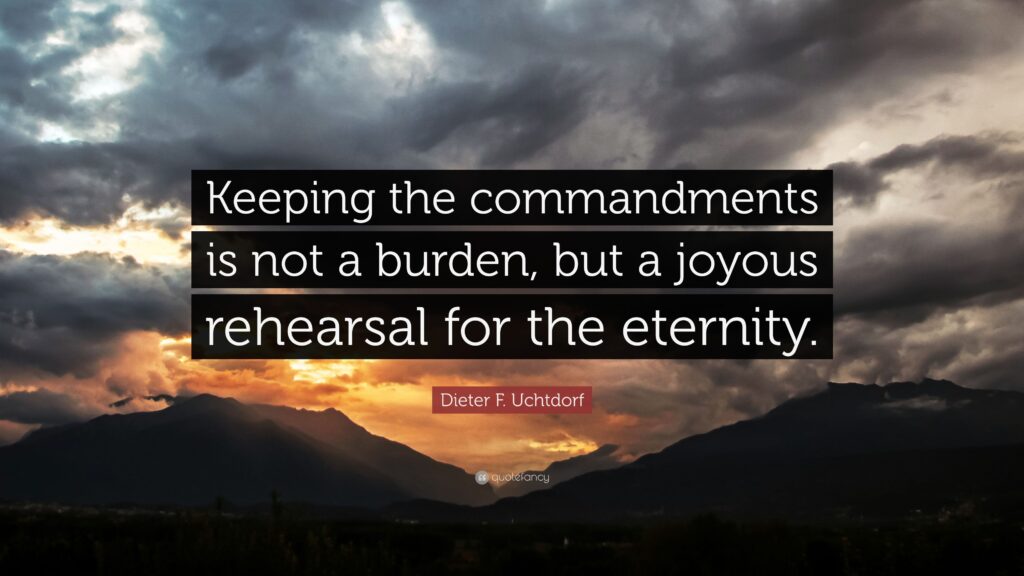
10. Why would 59:9 direct us to “offer up” our sacraments rather than “partake” of the sacrament?
59:8 makes clear that the modern equivalent of the ancient law of sacrifice is the offering of a broken heart and a contrite spirit. When we take the sacrament with the proper spirit, we are doing just that–sacrificing our own selfish desires and agreeing to do whatever the Lord would have us do.
11. What counsel regarding the Sabbath in D&C 59 do you believe deserves further emphasis?
Your choice. My answers might include:
- Verse 10 forbids our labors, but not laboring in the Lord’s work. Many bishops can attest they are busier on Sunday than on any other day of the week.
- Also, there are things most of us can do in advance to lessen our personal labor on the Sabbath, such as preparing meals ahead of time which can simply be rewarmed, having our clothes clean and located ahead of time, etc.
- The Sabbath will be better if we are prepared ahead of time by reading the Sunday School lesson material or the designated talk for elders quorum or Relief Society meetings.
- Arriving punctually to our meetings (ideally 10-15 minutes early) is part of proper Sabbath observance.
12. How “much laughter” does it take to constitute sin?
As much as it takes to drive the Spirit of the Lord from us. Certainly, the Lord is not condemning the kind of happy laughter promised to righteous mourners in Luke 6:21, but that which connotes derision, lightmindedness, and other unholy emotions.
FIND A REFERENCE IN D&C 58-59 FOR EACH OF THE FOLLOWING IDEAS:
13. The rightness or wrongness of abortion doesn’t depend on our resolving the question of when the spirit enters the body.
59:6–thou shalt not kill nor do anything like unto it.
14. Two verses which probably meant more to Joseph Knight than anyone else.
59:2, 23, in view of the recent death of his wife
15. What passage in this week’s reading should be most enlightening for those who feel they can’t serve the Lord because the bishop won’t give them a calling?
Probably 58:26-29. One could be kept busy full time doing temple work, visiting the needy, sharing the gospel, etc., without ever having a formal calling.
16. What passage is the Lord’s answer to those who would say, “The Church of Jesus Christ of Latter-day Saints cannot be true, because there were things promised in my patriarchal blessing forty years ago which have not come to pass, and I’ve now been diagnosed with terminal cancer with only weeks to live and there is no prospect of their coming to pass”?
58:32-33 might fit. Perhaps the complainant didn’t keep his end of the gospel covenants. But it’s also worth noting that not all that is promised in patriarchal blessings need come to pass in this life. They are just as valid if fulfilled in the life to come.
17. What passage in D&C 58 might be comforting to a prospective missionary who wanted to go on a mission but wasn’t sure he could stand up and say he knew for sure that the Church was true?
58:59
18. Evidence that the Lord has an aesthetic sense.
59:18-19. We have only to look around us to see evidence of the Lord’s love for us in giving us such lovely scenery. See my article on the subject at https://latterdaysaintandhappy.com/evidence-gods-existence-love-beauty-creation/

19. The one blessing which is promised to all faithful saints in this life.
59:23—not necessarily health, wealth, marriage or children—but peace, one of the principal gifts of the “Comforter,” or Holy Ghost.

20. What other passages or ideas did you find in these two sections that you felt are worth highlighting?
Your choice. Mine would include:
- 58:3: We cannot see the future the way God can and need to have faith in His wisdom and goodness.
- 58:21: The Lord’s instructions not to break the laws of the land have seldom- considered implications for how fast we drive, how we complete our tax returns, and whether we throw litter on the ground, among other things.
- 59:7: Expression of gratitude is a commandment.
